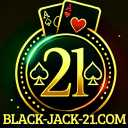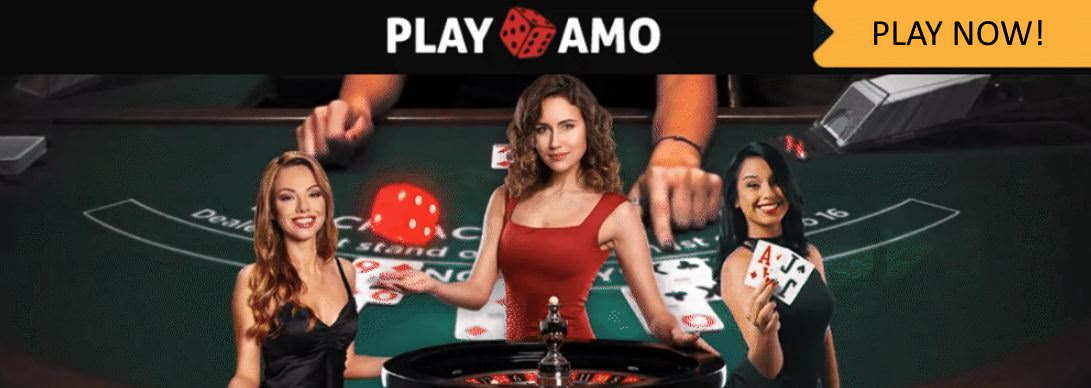blackjack Rules – So geht das beliebte Casinospiel 21! Mit dieser Anleitung werden die Spielregeln für Anfänger einfach erklärt!
Who in the casino money win must first have the Black Jack Rules können. Keine Angst! Wir erklären es dir hier ganz einfach. Mit unseren Tips und Tricks erkennst du, auf was man achten muss, um mit den besten Black Jack Regeln einen möglichst geringen House edge of the casino to get.
Where do we play blackjack online?
The best Experience at Black Jack we have in the Playamo Live Casino made. In my opinion, that's where it's at, BEST SELECTION at tables with live dealers and you can train very well for the real casino! Compared to other online Casinos the winnings at Playamo are really paid out and that's why I would recommend the Playamo online casino definitely recommend!
The Playamo Casino has many live tables for blackjack and a quick Payout from profits.


The lower the house advantage, the better the Odds of the player.
In this article learn you will learn the basics of blackjack and which rules you should pay attention to. Let's start by learning how to play the game:
Video: Blackjack rules explained simply for beginners
blackjack is one of the simplest and yet most exciting Card games in every Casino. The Rules are easy to understand what the Game ideal for beginners. All you need to know is that with your Maps closer to the Value of 21 than the Dealerwithout this Value to exceed. The fundamental Rules include the Pull from Maps (hit), the Stand still (stand), the Double (Double Down) and the Splitting (split) with two identical Maps.
🃏 Black Jack Rules - How does Black Jack work?
To be successful Play blackjackyou must use the Rules know inside out. Whether online or in the classic Casino - These basic rules apply everywhere. The aim of the game is to use your Maps closer to 21 points than the Dealerwithout exceeding the value of 21.
🎮 The game in detail
Everyone Player receives two Maps. The Croupier - this is the Dealer - also receives two Mapswith one remaining hidden. Now you have to play as Player decide:
- Hit (draw card): An additional Map will be drawn to Point value to increase.
- Stand (remain standing): You stay with your current Value.
- Double Down (double the stake): You double your Insert and you get exactly one more Map.
- Split (Share): If you have two identical Maps you can split them into two separate hands. You should note that the Splitting in some Variants is regulated differently.
- Insurance (Insurance)When the Dealer a Ace shows, you can create a Insurance against a possible blackjack of the Dealers finalise.
These steps form the basic Gameplay at blackjack and decide on your success on the Table.
📝 Black Jack Rules PDF - Everything at a glance
For those who want a compact and clear version of the Black Jack Rules prefer, there are numerous Black Jack Rules PDF-documents online. These PDFs are perfect for Rules to have at hand at all times, be it for the Play in a physical Casino or online.
🔢 The card values in Black Jack
The Values the Maps at blackjack are crucial for every strategy and every move:
- Aces count as either 1 or 11 points. This depends on which Value gives you more of an advantage in the current game situation.
- Picture cards (King, Queen, Jack) count 10 points each.
- All others Maps have their imprinted Value.
Do you understand these Card valuesyou are ideally equipped to Rules optimised for use and Play to make smart decisions.

Black Jack Rules - The rules of 21
Blackjack is played with a deck of cards containing 52 cards or several Packs of cards played.
Each card is assigned a point value. Cards 2 to 10 are worth as much as the numbers printed on them.
King, Queen and Jack are each worth 10 points.
Aces can be used as either 1 or 11.
The aim for the player is to get more points than the dealer by drawing cards, but not to exceed the best value of 21 (bust / overbuy).
The best sum of all is a 21 with two cards. This hand is called "blackjack" and used as a synonym for the card game.
For a blackjack, the casino pays a bonus in the ratio of 3:2 to the stake. This means that a 21 with the first two cards at a bet of 5 euros wins 7.50 euros instead of the usual 5 euros for other winning hands.
However, if the dealer also has a 21 from two cards, the hand is considered a tie (push/tie) and you only get your original bet back.
If the dealer has a 21 with three or more cards, you still win with a blackjack and get a payout of 3:2. You can also find more rules on bestonlinecasinos.co.
Black Jack Table

The game is usually played at an arc-shaped table with room for up to seven players. The dealer sits on the inside and the players sit opposite him on the outside.
At one corner of the table there is a rectangular sign indicating the minimum and maximum bets (limits) at this table and summarising the rules that apply at this table. For example, the sign could say:
"BLACKJACK. 5 to 500 dollars. Split pairs up to three times. Double on any two cards."
This means that the minimum bet at this table is 5 dollars and the maximum is 500 dollars.
If a player is dealt two or more cards of equal value in a hand, the pairs can be dealt up to three times for a total of four hands.
The player can double the original bet (double down) and in this case only receives one additional card.
Blackjack game play

Most blackjack tables today use six or eight decks of cards.
After shuffling, the cards are placed in a container that can be used as a Shoe or sled is called. From this, the dealer can quickly and easily pull out a card and deal it.
In some casinos in the USA, however, there are still classic Black Jack Games with one pack of cards (single deck) or two packs of cards (double deck). The cards are dealt from the dealer's hand. These blackjack games are mainly found in Nevada, Mississippi and a few other places.
The game begins when the players place their bets. To do this, they place one or more chips in the betting box on the table in front of them. After all bets have been placed, each player receives a card. Dealing begins with the first player to the left of the dealer (first base). If every player has a card, the dealer himself receives a card with the face value facing up (up card). Then all players - starting with the player at first base - receive the second card. The dealer draws the last card and places it face down next to his face-up card. The second card is called the hole card.
In a shoe game, all player cards are dealt face up and players are not allowed to touch their cards. In a blackjack game with one pack of cards or a double deck game, the cards are dealt face down and the players can pick them up with one hand. In either case, one of the dealer's cards is turned face up for the players to see.
Options of the players in blackjack

As soon as the cards have been dealt, the players decide in turn how to play their hands. The players have the following options, which determine whether they win or lose.
Hit: Draw card
With the drawing of further cards, the aim is to reach the record of 21 Points so nahe wie möglich kommen. Wenn man mit der Summe der beiden ausgeteilten Karten noch nicht zufrieden ist, kann man eine weitere Karte nehmen. Dann rechnet man erneut die Kartenwerte zusammen und kann solange weitere Karten nehmen, bis man entweder genau 21 bekommt oder sich mit mehr als 21 Punkten „überkauft“ hat. Das nennt man dann „Bust“. Wer sich überkauft verliert den Einsatz, egal was der Dealer hat. Deswegen ist es manchmal besser mit weniger zufrieden zu sein als ein Bust zu riskieren.
In concealed games, the player signals a hit by scratching the table with the cards. Verbal statements alone are often not accepted, as video surveillance decides in cases of doubt and relies on clear gestures.
Hand signal: Tap the table next to the cards with the flat of the hand.
Stand: Stand still without drawing a card.
If left standing, no more cards are drawn in the hope that the current total will beat the dealer. In a single-deck or double-deck game from the hand, the cards are pushed face down under the bet.
Hand signal: signal a "stop" with the flat of your hand or "wipe" back and forth in the air above the table
Double down
You can double the original stake and then only get one more card regardless of the card value.
Einige Casinos beschränken die Verdoppelung auf Hände, in denen die ersten beiden Karten 10 oder 11 ergeben. Andere Casino erlauben es zwei beliebigen Karten zu verdoppeln.
Beim Verdoppeln schiebt man einen weiteren Einsatz in Höhe des ursprünglichen Use in its deployment area. In a face-down game, you must also reveal the first two cards at this point.
Split (share pairs)
If the first two cards have the same value, you can make a second bet and split the pair. Then each card is used as the first card in a separate hand.
For example, if two 8's are dealt, you can signal that you want to split with a second bet equal to the first.
The dealer separates the 8s and then places a second card on the first 8. You play this hand in the normal way until you either stand or bust. The dealer then places a second card on the second 8 and you also play this hand.
Hand signal: Point to the pair of cards with spread index and middle finger (upside down peace sign).
Insurance

If the dealer's face-up card is an ace, you have the option of taking out "insurance". This is essentially a bet that the dealer has a card with a value of 10 to complete a blackjack.
The insurance can be taken out for half the original stake. If the dealer has a blackjack, you receive a 2:1 payout. As you lose the hand against a blackjack from the dealer at the same time, you do not make a loss through the insurance in this case.
Many dealers advise players to take out insurance if the player himself has a blackjack. In this case, you get "even money" and only a single win, instead of the usual payout of 3:2 for a blackjack.
However, beginners should remember this: Never take out insurance!
Insurance would be a fair bet if the dealer with an ace was dealt a blackjack 33.3 % of the time. But only 30.8 per cent of the cards have a value of 10.
The insurance is disadvantageous for the player. The exception is if you can count cards and know that an unusually large concentration of 10-value cards still needs to be played.
Dealer Drawing Rules
The Dealer at blackjack must adhere to strict Rules hold:
- The Dealer If 16 or fewer points are awarded, a further Map draw.
- With 17 points or more, the Dealer stand still.
- If the Dealer a Acehe offers the Players one Insurance to defend themselves against a possible blackjack of the Dealers to be secured.
These Rules are in almost all Casinos the same worldwide, regardless of the Variant of the game.
Variations of Black Jack Rules
Nicht alle Blackjack-Spiele sind gleich. Einige Variationen in den Regeln sind gut für den Spieler, andere sind schlecht und erhöhen den Hausvorteil des Casinos. Die Verschiebungen im Hausvorteil können klein aussehen, aber sie stellen große Unterschiede dar, da der gesamte Hausvorteil kleiner als 1 Prozent ist, wenn man sich an die grundlegenden Black Jack Strategy Tabelle hält. Hier sind einige gängige Varianten und ihre Auswirkung auf den Hausvorteil:
DAS - Double after Split: Double downs allowed after splitting pairs
A very good rule for the player is if you are still allowed to double after splitting pairs. This reduces the house edge by 0.13 per cent. In areas where there are several casinos within a reasonable distance, you should play where doubling down after splitting is allowed.
Re-Split Aces: Splitting pairs of aces again
In most casinos, you only get one additional card per ace after splitting a pair of aces. However, if you receive another pair of aces in a split hand, some casinos allow you to split the new pair of aces again.
This option reduces the house advantage by 0.03 percent. It is even rarer to find a game where it is even allowed to draw more than one card to a split ace. This option reduces the house advantage by 0.14 percent.
Early Surrender: Surrender BEFORE the dealer checks for Black Jack
If the dealer's face-up card is an ace, the dealer checks whether the second card (hole card) is a 10. This would complete a blackjack for the dealer.
If the blackjack rules stipulate that the player must surrender early, you can get half of the original bet back without playing the hand, before the dealer checks for blackjack
This is a huge advantage for the player. However, this rule hardly exists any more. It would reduce the house advantage by a whole 0.624 per cent.
Late Surrender: Surrender AFTER the dealer has checked for Black Jack
Diese Black Jack Regel ist wensetlich häufiger als early Surrender, aber immer noch nicht alltäglich. Bei Late Surrender ist es erlaubt seine Hand aufzugeben und die Hälfte des Einsatzes zurück zu bekommen, after the dealer has checked for blackjack. Dieses verringert den Hausvorteil lediglich um 0.07 Prozent in einem Sechs-Deck-Spiel und sogar nur um 0.02 Prozent in einem Single-Deck-Spiel. Allerdings gehört es für professional Blackjack-Spieler unweigerlich dazu, dass man in allen Bereichen das bestmögliche herausholt. Auch, wenn es nur ein mickriger Promillepunkt ist.
Double-Downs limited to 10 and 11
While most casinos allow doubling down on all possible starting hands, there are some casinos that only allow doubling down on starting hands 10 and 11. This rule is frankly cheeky and increases the casino's house edge by 0.28 per cent.
Dealer Hit Soft-17
Wenn der Dealer eine Hand mit einem Ass oder mehreren Assen bekommt, die entweder als 7 oder 17 summiert werden können, wird er bei dieser Regel noch eine Karte ziehen müssen. Dadurch wird der Hausvorteil um 0.2 Prozent erhöht. Es ist also besser, wenn der Dealer mit JEDER 17 stehen bleiben muss. Das steht dann auch dick und fett auf dem Black Jack Table: „Dealer stands on ANY 17“.
Blackjack pays 6-5
Unfortunately, this poor payout ratio for a blackjack is now common in single-deck games on the Las Vegas Strip. For example, a 21 from two cards only pays $6 for a bet of $5 instead of the usual $7.50.
This rule increases the house edge by a full 1.4 per cent compared to playing with the basic blackjack strategy with the normal payout of 3-2. You should therefore never play at a table where the payout ratio is 6:5.
❓ FAQ on Black Jack rules
What happens if the dealer and the player both have 21?
This is a "push" - there is no money back, but no loss either.
Can you double down on every hand?
Yes, but it often only makes sense if you have a strong Hand have.
What is the difference between "hard" and "soft" hands?
A "hard hand" has no Ace or the Ace counts as 1. A "soft hand" contains a Acewhich counts as 11.
Can you play blackjack online?
Yes, there are numerous Online casinoswhich blackjack often with live dealers.
What are the odds of winning at Black Jack?
With the right Strategy the House advantage can be reduced to around 0.5 %.
🎮 Black Jack - How many cards?
At blackjack everyone receives Player and the Dealer at the beginning of the game two cards. The players can then decide whether they want to Maps want to move closer to the Value of 21. There is no fixed upper limit for the number of Mapswhich is a Player in a round, as long as he does not have the Value exceeds 21 and therefore Bust suffers.
🤔 How do you play blackjack properly?
To blackjack to play correctly, you must Rules master the Strategies that your Odds maximise the benefits. This includes understanding the Card valuesthe right Pull and Stand stilland the Double and Splitting. It is also important to know when it is worthwhile to Insurance and when not to use it. With a good Black Jack Table and regular practice, you can take your game to the next level.
🎴 What if you have 2 aces in blackjack?
If you have two Aces you have the possibility to split. This means that you divide them into two separate hands and add an extra hand to each. Map for each Ace you receive. Aces to split is usually a wise decision, because Aces count as 1 or 11 points and give you the chance to win two strong hands.
💯 How much do the cards count in blackjack?
The Values the Maps at blackjack are crucial:
- Aces: 1 or 11 points.
- Picture cards(King, Queen, Jack) 10 points.
- Other Maps: Your printed Value.
🏦 Until when does the bank have to draw in blackjack?
The Bank or the Dealer must be used for blackjack until it has reached at least 17 points. With 17 or more points, the Bank stand still. This is a central Rulethat the Gameplay and the Strategies the Player strongly influenced.
By using the Rules and Strategies of this classic card game you'll be able to work both online and in physical locations. Casinos play more successfully and your Odds to increase!




